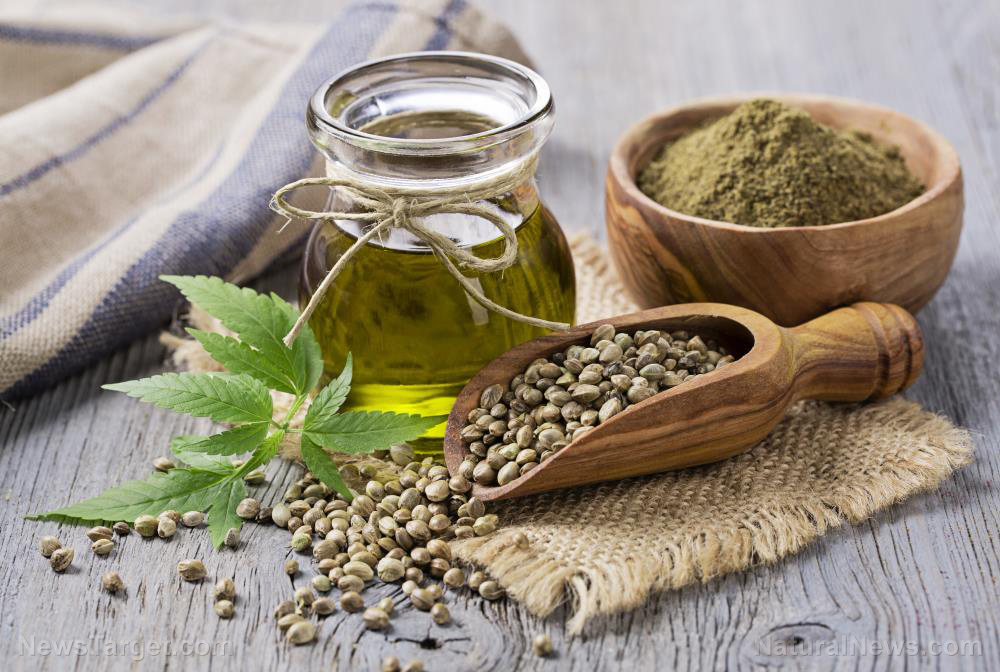Nutrient-dense acai berries: The ultimate superfood for optimal health
01/18/2022 / By Olivia Cook

Acai (pronounced as “ah-sigh-yee”) is a palm fruit native to the rainforests of South America and harvested from the acai palm tree (Euterpe oleracea), which grows in large sprays on fan-like branches much like grapes.
The acai berry, whose pit constitutes about 80 percent of the fruit, has been a local dietary staple of the people native to the Amazon for centuries because of its health benefits. They describe its taste as a cross between tangy pomegranate and raspberries, with a slightly distinct earthy aftertaste similar to cocoa or cacao bits.
Dubbed by the Brazilians as the “beauty berry,” acai berries have become a “darling” of the Western health food and wellness realm in the 1980s. Acai berries have been widely acknowledged as a nutrient powerhouse for the wide array of phytonutrients and potent antioxidants they contain. (Related: Wildcrafted acai berries from Brazil pack a nutritional punch.)
What makes acai berries a superfood
Antioxidants. Studies have shown that acai berries have 10 times the antioxidant content of grapes and two times the antioxidant of blueberries. Acai berries are loaded with antioxidant properties due to their abundance of anthocyanins (plant pigments), which are a type of flavonoids (a diverse group of phytonutrients or plant chemicals responsible for the vivid colors in fruits and vegetables). Anthocyanins in acai berries support cellular health by protecting cells from free radical damage.
The antioxidant effects of acai berries have largely been attributed to phenolic compounds that are readily absorbed through intestinal tract walls, and are beneficial to human health because they avert the damage of cells resulting from free-radical oxidation reactions.
Healthy fatty acid profile. Beyond tasting delicious, acai berries naturally contain vital omega-3 (eicosapentaenoic acid, docosahexaenoic acid), omega-6 (alpha-linolenic acid, gamma-linolenic acid) and omega-9 (oleic acid) and mono-saturated oleic acid, which are healthy fatty acids that cover all your body’s essential fatty acid needs.
Amino acids. The acai berry contains 19 amino acids, which are the building blocks of protein, and every 100 grams of acai contains more than eight grams of protein. The amino acid content found in acai supports healthy muscle building and repair.
Plant sterols. Acai also contains a high concentration of plant sterols (or phytosterols), including campesterol, stigmasterol and beta-sitosterol, which have numerous health benefits that include supporting heart health and healthy digestive functions.
Vitamins and minerals. Acai berries have the same amount of vitamin C as blueberries and more than 1,000 international units (IU) of vitamin A per 100 grams. Further, they are rich in B-complex vitamins, vitamin B6 (pyridoxine), vitamin K, vitamin B3 (niacin) and adequate amounts of vitamin B2 (riboflavin). These vitamins function as co-factors and help the body in the metabolism of carbohydrates, proteins and fats.
Acai also contains the minerals potassium, copper, calcium, magnesium and zinc, which support a healthy immune system.
Fiber. Acai has high fiber content. Every 100 grams of freeze-dried acai powder contains approximately 14 grams of fiber, which support a healthy digestive system.
Nutrient-dense acai is also one of those fruits that don’t contain sugar in its natural state. Acai berries are available in fresh-frozen packs, freeze-dried powder, juices and purees. Since acai is sugar-free, you can always sweeten it with pure organic honey.
People often ask why they can’t just buy fresh acai berries in the store and why it has to be frozen. Because of the high levels of healthy omega fats found in the acai fruit, it will start to turn rancid if it’s not frozen within 72 hours after being harvested.
Science-backed health benefits of acai berries
Here are some of the incredible health benefits of acai berries, according to studies:
Support healthy cognitive function
Natural and medicinal researcher Dr. Alexander G. Schauss found acai to contain the most potent combination of antioxidants, polyphenols and flavonoids of all fruits, vegetables or nuts.
According to a study that appeared in the Journal of Agricultural and Food Chemistry, acai berries contain potent antioxidants like anthocyanins and phenolic compounds like resveratrol that can help protect your brain from oxidative stress.
Researchers from the University of Adelaide in Australia also found that consuming acai berry extract can help you maintain optimal cognitive function.
Support healthy cardiovascular function
A study published in the American Journal of Clinical Nutrition in 2016 found that the antioxidant-rich acai berry supports healthy cardiovascular function.
The anthocyanins, omega-3 and omega-9 fatty acids in acai berries support heart health by preventing cholesterol oxidation and maintaining cholesterol, triglyceride and blood pressure levels that are already within the normal range.
Acai berries also have high levels of plant sterols, which support healthy blood circulation and blood vessel health.
The fiber and heart-healthy fats in acai also support heart health by increasing HDL (good) cholesterol and decrease LDL (bad) cholesterol.
Support a healthy immune system
Acai has vitamins and minerals that support normal growth and development and a healthy immune system.
The natural abundance of antioxidants in acai berries supports the body’s natural defenses against external threats. Omega-3 and a unique polysaccharide fraction called arabinogalactan in acai berries support a healthy immune system.
Support healthy digestive function
According to researchers at the University of Roehampton in London, the polyphenol content of acai berries can survive the digestive system’s environment, allowing it to provide prebiotic benefits to the digestive tracts.
Due to their antioxidant and fiber content, acai berries support healthy digestive function by regulating bowel movements and clearing out harmful toxins from the body.
Support skin health
With its high content of vitamins, antioxidants and other nutrients, acai berry is a superfood for the skin. Regularly eating acai berries is a great way to have healthy glowing skin.
The antioxidants in acai berries neutralize oxidative damage caused by environmental stressors, such as pollution. Omega-6 and ferulic acid, which boost the effects of other antioxidants in acai berries, support the growth of healthy glowing skin, hair and nails.
Support healthy sleep patterns
The acai berry contains amino acids that ease your muscles and allow a more peaceful sleep. The omega-3 fatty acid in acai also supports healthy sleep patterns.
The vitamin B in the fruit supports healthy levels of dopamine and serotonin (brain neurotransmitters that improve sleep) that are already within the normal range.
Support sensible weight management plans
Acai berries are known to support normal metabolic function, which makes them an excellent tool for supporting sensible weight management goals when accompanied by a proper diet and exercise.
Acai berries are rich in fiber and have appetite suppression qualities. They also have a positive impact on the digestive system, thus helping the body to process foods better and burn fat more efficiently.
Support healthy energy levels
According to a 2015 study that appeared in the journal Applied Physiology, Nutrition and Metabolism, acai berry extract can help maintain healthy energy levels in the body that are already within the normal range.
The acai berry contains 19 amino acids, including sterols, which help with muscle performance, energy production, endurance and strength.
Acai’s support of body health results in increased stamina and energy as the body works more efficiently, especially when combined with a balanced diet and regular exercise.
Naturally uplift mood
Acai berries contain the amino acid tryptophan, which generates serotonin – a mood stabilizer. They’re a nutrition-packed fruit, rich in potassium and a good source of vitamin B6, which enhance the effects of serotonin and dopamine – two hormones that are especially known to uplift the mood and make us happy.
Watch the video below to know the reasons why acai berries can improve your health.
This video is from the Natural Remedies channel on Brighteon.com.
Follow Superfoods.news to learn more about the incredible health benefits of superfoods like acai berries.
Sources include:
Submit a correction >>
Tagged Under:
acai berries, antioxidants, brain function, brain health, digestion, food is medicine, food science, fruits, functional food, heart health, immune system, mental health, natural medicine, nutrients, sleep, slender
This article may contain statements that reflect the opinion of the author
RECENT NEWS & ARTICLES
BrainHealthBoost.com is a fact-based public education website published by Brain Health Boost Features, LLC.
All content copyright © 2018 by Brain Health Boost Features, LLC.
Contact Us with Tips or Corrections
All trademarks, registered trademarks and servicemarks mentioned on this site are the property of their respective owners.




















